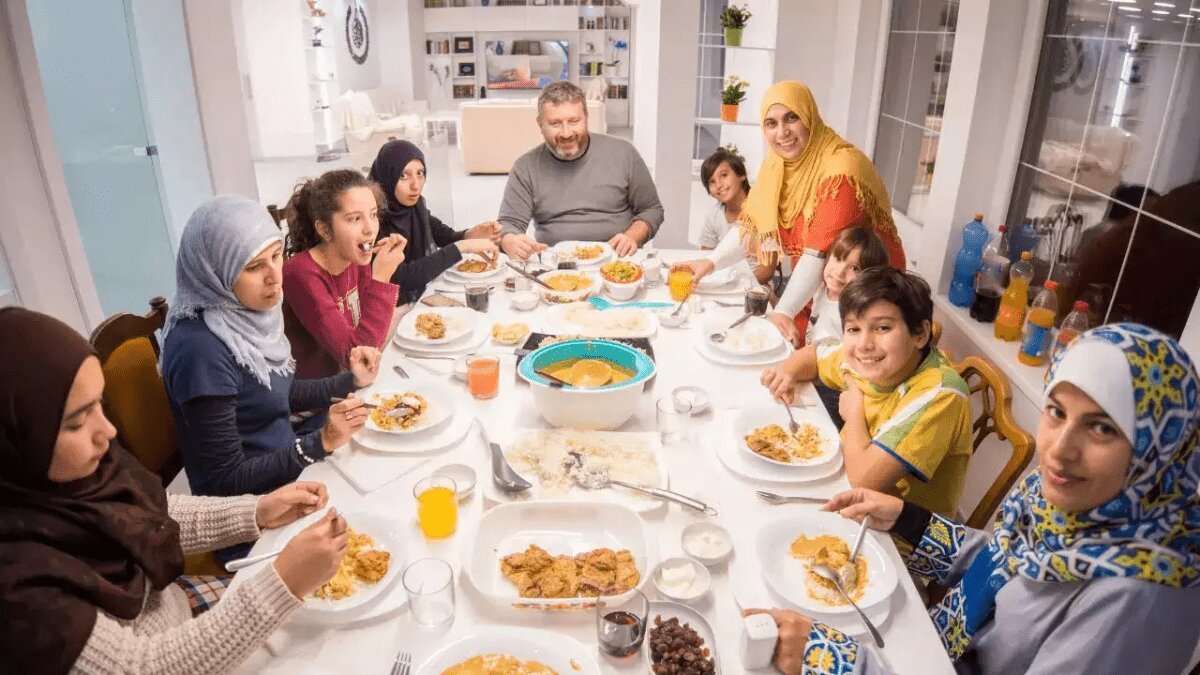Ramadan, the ninth month of the Islamic lunar calendar, holds immense significance for Muslims worldwide. It is a time of spiritual reflection, self-discipline, and increased devotion, marked by fasting from dawn until sunset. Beyond abstaining from food and drink, Ramadan offers a unique opportunity for individuals to deepen their connection with Allah, engage in acts of worship, and foster a sense of community and compassion. If you’re looking to fully embrace the spirit of Ramadan, here’s a detailed guide on how to celebrate this sacred month:
1. Prepare Mentally and Spiritually: Begin by preparing yourself mentally and spiritually for the month of Ramadan. Set intentions for self-improvement, spiritual growth, and increased devotion. Reflect on your goals and aspirations for the month ahead, seeking guidance from Islamic teachings and personal reflection.
2. Perform Suhoor and Iftar Rituals: Suhoor, the pre-dawn meal, and Iftar, the meal to break the fast at sunset, are integral rituals during Ramadan. Wake up before dawn to partake in Suhoor, replenishing your body with nourishing foods and fluids before beginning the fast. Gather with family and friends at sunset for Iftar, sharing a meal together and expressing gratitude for the blessings of sustenance.
3. Engage in Fasting: Fasting from dawn until sunset is the cornerstone of Ramadan observance. Abstain from food, drink, smoking, and other physical needs during daylight hours as an act of self-discipline, purification, and spiritual devotion. Embrace the challenges and rewards of fasting, seeking strength and patience through prayer and perseverance.
4. Increase Acts of Worship: Use Ramadan as an opportunity to increase your acts of worship and devotion. Dedicate time each day for prayer, recitation of the Quran, and supplication. Attend congregational prayers at the mosque, participate in Taraweeh prayers during the evenings, and engage in additional acts of worship such as Tahajjud prayers and Dhikr (remembrance of Allah).
5. Practice Charity and Generosity: Ramadan emphasizes the importance of charity, compassion, and generosity towards those in need. Give Zakat (obligatory almsgiving) and Sadaqah (voluntary charity) to support the less fortunate and alleviate suffering in your community. Extend kindness and assistance to neighbors, relatives, and strangers, embodying the spirit of empathy and solidarity.
6. Seek Forgiveness and Repentance: Take advantage of Ramadan as a time for spiritual renewal and repentance. Seek forgiveness for past transgressions, reflect on your shortcomings, and strive to mend relationships and rectify mistakes. Engage in sincere repentance through prayer, introspection, and acts of atonement.
7. Foster Family and Community Bonds: Ramadan provides a unique opportunity to strengthen family and community bonds. Gather with loved ones for shared meals, prayer, and spiritual discussions. Host or attend Iftar gatherings, Taraweeh prayers, and community events at the mosque or local Islamic center. Foster a sense of unity, solidarity, and mutual support within your community.
8. Practice Self-Reflection and Gratitude: Take time for self-reflection and introspection during Ramadan. Assess your spiritual journey, goals, and aspirations, seeking opportunities for growth and self-improvement. Cultivate a mindset of gratitude and appreciation for the blessings of faith, health, and community, acknowledging Allah’s mercy and providence.
9. Maintain Good Deeds Beyond Ramadan: As Ramadan comes to a close, strive to maintain the positive habits, virtues, and deeds cultivated during the month. Carry forward the spirit of Ramadan by continuing acts of worship, charity, and compassion throughout the year. Embrace the values of discipline, gratitude, and devotion in your daily life, embodying the teachings of Islam beyond the sacred month.
10. Conclude with Eid al-Fitr Celebrations: Eid al-Fitr, the festival of breaking the fast, marks the culmination of Ramadan and is celebrated with joyous gatherings, feasting, and prayers. Attend Eid prayers at the mosque, exchange greetings and gifts with family and friends, and partake in festive meals and festivities. Express gratitude for the blessings of Ramadan and the opportunity to grow spiritually and communally.
In conclusion, celebrating Ramadan is a multifaceted journey encompassing acts of worship, self-discipline, charity, and community engagement. By embracing the rituals, values, and teachings of Ramadan, individuals can deepen their connection with Allah, strengthen their faith, and cultivate a spirit of compassion and solidarity within their communities. Ramadan offers a profound opportunity for spiritual growth, renewal, and transformation, enriching the lives of Muslims and fostering a culture of faith, kindness, and service. May each Ramadan be a source of blessings, guidance, and inspiration for all who observe it. Ramadan Mubarak!


